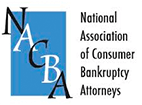Mortgage Options After Forbearance

During the COVID-19 pandemic, many New York homeowners took advantage of state or federal forbearance programs under the CARES Act, which allow pauses in mortgage payments. Now, as New York and the nation recover from the pandemic, those homeowners may wonder what options they have for paying their mortgage when exiting forbearance. Others who are still dealing with financial difficulties because of the pandemic may have questions about receiving a mortgage forbearance extension.
Homeowners exiting forbearance will need to repay the payments they missed during the forbearance period. How they make these payments will depend on the type of loan they have and on their financial situation.
There are generally four options for mortgage holders exiting forbearance:
- Repayment plan. If you can afford to pay more than your regular mortgage payment, a portion of the amount you owe may be added to your monthly mortgage payment until the total is repaid.
- Deferral or partial claim. If you can resume regular mortgage payments but can’t afford to increase them, your missed payments may be deferred to the end of your loan or put into a subordinate lien repayable when you refinance, sell, or terminate your mortgage.
- Loan modification. If you cannot afford your regular mortgage payment, the payment may be reduced, with your missed mortgage payments to the loan’s principal. Because your mortgage payments will be lower, it will take longer to pay off the loan.
- Reinstatement. This is an option for paying all missed payments in a single, lump sum. If it is possible, you would be fully caught up. For most loans, the mortgage lender cannot require you to pay a lump sum.
Where to Contact A Mortgage Lender for Options to Exit Forbearance?
The options to repay suspended mortgage amounts differ among federal agencies and private lenders.
Fannie Mae and Freddie Mac may offer a repayment plan, payment deferral, or a loan modification, depending on your situation.
If you have a HUD/FHA (Federal Housing Administration) loan, you’ll be assessed for eligibility for FHA’s COVID-19 Recovery Standalone Partial Claim home retention option by the end of the forbearance period. This is a deferral program that places amounts you owe into a subordinate lien. If you cannot resume monthly payments, servicers of FHA-insured mortgages will assess you for the COVID-19 Recovery Modification. This extends the term of the mortgage to 360 months at a fixed rate and targets reducing the monthly principal and interest rate.
The VA has multiple mortgage options for homeowners exiting the forbearance period, such as repayment plans and loan modification. Options for USDA Rural Housing Service loans include repayment plans or term extensions to defer any missed mortgage payments to the end of the loan.
If you have a private mortgage not backed by the federal government, check with your loan servicer for their forbearance repayment options. You may be able to find information on their website. Be sure to ask what limitations and fees may apply to the repayment of a loan that is not federally backed.
In December 2021, N.Y. Attorney General Letitia James reminded mortgage servicers of their continuing obligations to assist New Yorkers as COVID-19 forbearance plans and New York State’s foreclosure moratorium end. The attorney general said mortgage servicers should expect a sharp increase in customer requests and said the mortgage servicers should have adequate staffing to handle the demand.
Contact a Foreclosure Defense Lawyer in White Plains, NY, for Help
If your mortgage lender is not fully cooperative, attorney Michael H. Schwartz can help you pursue a loan modification and/or take all other steps to keep you in your home. He has never lost a client’s house to foreclosure. Call or reach out online to Michael H. Schwartz, P.C. today for a initial consultation.

Michael H. Schwartz is the largest filer of bankruptcy cases for people living in Westchester and Rockland counties in New York. A graduate of New York Law School, Michael has been licensed to practice in New York State courts since 1983. He is also licensed to practice in the U.S. Bankruptcy and District Courts for the Southern, Eastern and Northern Districts of New York and the District of New Jersey as well as the Second Circuit U.S. Court of Appeals. He is a graduate of Max Gardner’s Bankruptcy and Veterans’ Boot Camps. Several media outlets have reported on his cases or sought his insights, including The New York Times.





